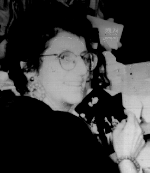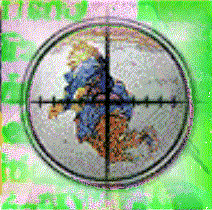The following suggestions can help you make the best use of this resource guide:
SPEAKERS. Contact organizations when you are looking for speakers
for school
classes or to participate in a conference or public forum.
MEDIA. Suggest to your local media that the work of organizations
listed be covered
in the local newspaper, its staff or volunteers hosted on local talk shows or on the
cable television community access stations. Consider interviewing some of them
yourself for an article in your church or community newsletter.
RESEARCH. Some organizations listed are resource networks and
libraries
themselves. Use them when you are doing research for a speech or sermon, a term
paper or a foundation proposal.
VOLUNTEERING. Most organizations depend on volunteers for some
of their work.
Look for ones that match your skills or attract your energy.
DONATIONS. All these organizations need financial support. But you
might also
think about supporting a group by organizing a fund raising event. This will increase
public awareness about the issues as well as providing needed funds.
INSPIRATION. Use the Guide as a source for organizing ideas to
develop programs
in your own community.
 October
1996
October
1996


